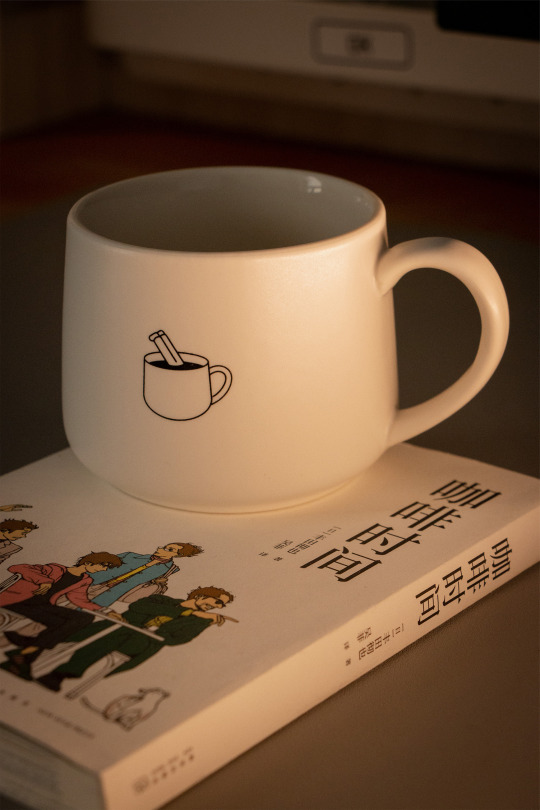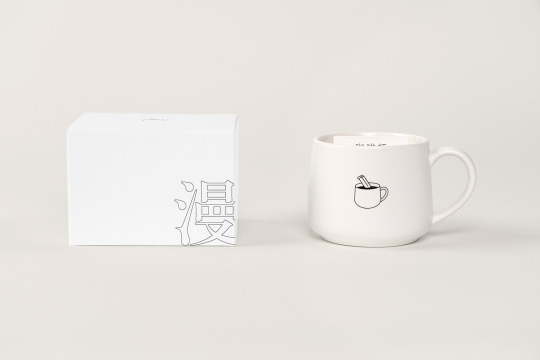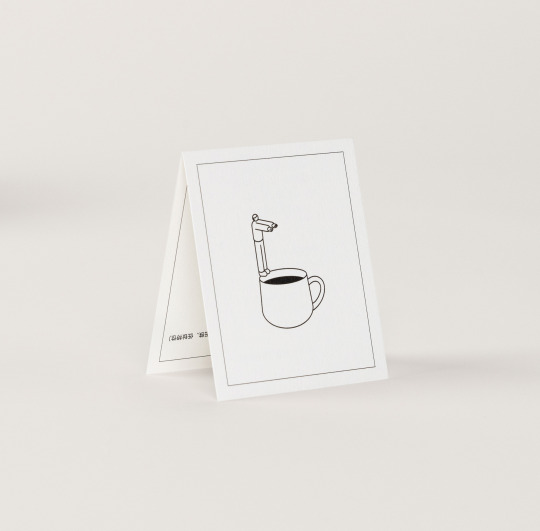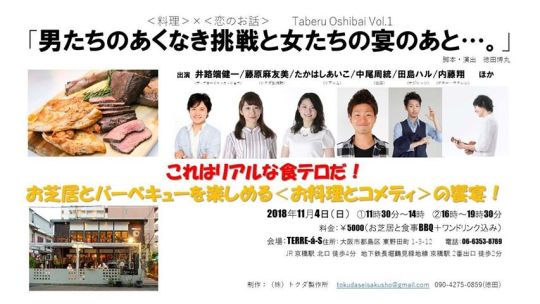#oshibai
Text







“走,喝咖啡去,现在马上!因为人生转眼就过去了!”
这是读库漫编室新推出的“漫编选·第三弹”中《咖啡时间》里的一句台词,出自漫画家丰田彻也。从这句话出发我们设计了一款咖啡杯。
购买网址: https://j.youzan.com/SatRv7
113 notes
·
View notes
Text
@evardilla on twitter has been translating the Animage interview and she graciously allowed me permission to republish it here. Note that this is only part of the interview and not the entire thing.
Hanyo no Yashahime Season 2
Interview with Sara Matsumoto, Mikako Komatsu, Mamiko Noto and Ken Narita.
Translation: @evardilla
No unauthorized reposts!
Although the parent-daughter reunion has finally happened, Towa and the others still don't have a moment's rest. Fathers and daughters fight respectively, wishing they could embrace each other in times of peace.
Ndt: It means that both fathers and daughters are fighting on their own.
THEY VOW TO MEET AGAIN!
Finally Towa, Setsuna, Seshomaru and Rin, the four family members managed to reunite again! However, they still don't have their reunion amidst tears and deep emotion; as Sesshomaru was injured by Kirinmaru's attack. Towa is the only one who could save her battered father by absorbing Kirinmaru's Youki with the "Zanseiken" she carries; and this time when using it her Kon was absorbed, however she chose to save her father without hesitation. As a result, she magnificently managed to help him, and although she lost her life for a moment, thanks to Akuru she was able to recover somehow. Sesshomaru's family is besieged by hardships one after another, they are barely breathing.
Within all those events they learn about Kirinmaru's true objective, which is nothing but two relevant points: The first is to destroy the meteorite approaching the modern era and thus obtain proof that he is the strongest yokai, and the second is to absorb through the Zanseiken the "kon" of Towa and thus use his body to revive his daughter Rion.
In order to prevent that great and selfish desire, Towa and company left for the present era, Rin sent his daughters away, in tears of sadness for the separation.
When will the time come when Sesshomaru's family can finally reunite...?
Let us await the battle with the hope of a happy ending.
"The Sesshomaru who knew love."
(Narita Ken's commentary)
I think Sesshomaru was aware of his "Love" thanks to Rin, that's why he couldn't leave her side anymore. It is probably a love very similar to humans, however rather than saying that he is close to humans it is as it is said in the Oshibai (theatrical piece), I think it gives the feeling that he "increased his knowledge". And I'm sure the way he treats Towa and Setsuna is related to those feelings.
Ntd: In this part he could no longer leave her side can also be interpreted as a "he could no longer separate himself from her".
Regarding the increase of his knowledge, the original phrase in Japanese is an expression that expresses an increase of knowledge not only talking about the emotional but also the physical plane. Depending on the context it can mean increase of techniques, powers, even feelings, etc., in the sense of positively increasing such abilities.
"That Rin became a mother!"
Mamiko Noto's comment.
For me Rin is a very important character that I have been involved with for a long time, I get the feeling that Sesshomaru sama, Jaken sama and Rin were one. When I heard about "Hanyo no Yashahime" and learned that that Rin had grown up, joined Sesshomaru sama and had children... my heart was deeply moved. Even when I play the adult Rin I am aware that Sesshomaru sama is Sesshomaru sama and Rin is Rin trying not to break that feeling of distance they cultivated in Inuyasha.
SESSHOMARU'S FAMILY THAT I WOULD LIKE TO SEE !!!
Translation: @evardilla
No repost without authorization!!!
Matsumoto: I can think of a scene where the 3 girls (Towa, Setsuna and Rin) are together with Jaken sama and Sesshomaru sama is one step behind. I think Sesshomaru sama will come and join the group when Rin calls him.
Komatsu: It's a very Showa* era image, but imagine the 4 family members together with Jaken sama eating rice around the chabudai* (laughs). In a more current situation I'd like to see Sesshomaru and Rin attend Towa and Setsuna's sports festival, or the parent-teacher interview* in high school.
Matsumoto: Right!!! I'd love to see it!!!
Noto: I'd like to go and watch a class!
Narita: Sports festival...? (laughs) Even if Sesshomaru were to attend, he would apparently sneak a peek from afar. " Mmm, they're doing well...", he would watch only the beginning of the event and leave Jaken in his place.
Matsumoto: Also the delivery of high school entrance exam results! Sesshomaru sama would go to see the results even before those involved.
Narita: He would be happy with whatever results his girls get. If they pass, he would praise them; but if they don't....
Noto: He seems to be a strict dad (laughs).
Narita: In that case it would be Rin who comforts them.
Noto: It's a nice family with a good division of roles.
Ndt: Japan's Showa era comprises the period of Emperor Hirohito's reign from 1926 to 1989.
The chabudai is a small table that can be round or square and usually goes in the traditional room in a Japanese house. As it is very low, the family usually sits on the tatami floor or on cushions to eat or drink tea.
Regarding the parent-teacher interview, it refers to a meeting between the class tutor and the students' parents together with the students in which they chat about their concerns and some specific aspects of their academic performance etc.
Regarding what Mamiko Noto mentions about witnessing a class, she refers to open classes in which parents can go and witness what a normal class is like in their children's school, usually they observe from the back of the room and the children participate as they are supposed to normally do.
#translation#animage#yashahime#hanyo no yashahime#ken narita#mamiko noto#sara matsumoto#mikako komatsu#sesshomaru#sesshoumaru#sesshomaru and rin#rin#towa#setsuna#higurashi towa#towa higurashi#interview#sessrin
46 notes
·
View notes
Photo

[Personal] 2.5jigen STAGE-DICTIONARY
I thought it would be fun to create a little dictionary with the most important terms every fan of the 2.5jigen stage world should know and help those who are currently learning Japanese (or want to learn^^) to improve their stage-vocabulary♡
ps: let me know if there are terms you think that need to be added
2.5jigen STAGE-DICTIONARY under the cut^^
A
◎ アドリブ (adoribu): ad-lib (lat.: Ad libitum)
→ an actor speaks through their character using words not found in the script (improvisation/spontaneous creation)
◎ 挨拶 あいさつ (aisatsu): greetings; speech
→ giving a speech at the end of a performance
B
◎ 場当たり ばあたり (baatari): stage rehearsal
◎ 舞台 ぶたい (butai): stage
D
◎ 台本 だいほん (daihon): script
◎ 代役 だいやく (daiyaku): substitute actor
◎ 出待ち でまち (demachi): waiting for departure [*]
→ waiting for an actor/actress to leave the theater after a performance
◎ 緞帳 どんちょう (donchou): drop curtain
F
◎ ファンサ [ファンサービス] (fansa [fansaabisu]): fan service
G
◎ 楽屋 がくや (gakuya): dressing room
→ dressing rooms located in a theater
◎ 凱旋公演 がいせんこうえん (gaisen kouen): performance given after a successful tour (abroad)
→ often used for a show that comes back to Tokyo after performing in different cities
◎ 芸名 げいめい (geimei): stage name
→ a name an actor/actress is publicly known by (different from his/her real name)
◎ ゲネプロ (genepro): Generalprobe ‘ɡenəˈraːlproːbə’ (German) dress rehearsal
→ the last rehearsal before the actual performance
H
◎ 花道 はなみち (hanamichi): ‘flower road’
→ an extra stage section that runs from the back of the theater, through the audience, to the main stage
◎ 初舞台 はつぶたい (hatsubutai): debut
→ first stage appearance of an actor/actress
◎ 日替わり ひがわり (higawari): daily special
→ term used for daily changing ad-lib
→ term used for daily changing guests who appear during the run of a show
◎ 昼公演 ひるこうえん (hiru kouen): noon/daytime performance
◎ 本読 ほんよみ (honyomi): reading rehearsal
→ usually the first day the whole cast & staff get together and reads the script
I
◎ 入り出 いりで (iride): enter-exit [*]
→ combination of the terms irimachi and demachi
◎ 入り待ち いりまち (irimachi): waiting for arrival [*]
→ waiting for an actor/actress to enter the theater before a performance
◎ 衣装 いしょう (ishou): (stage) costume [**]
J
◎ 上階 じょうかい (joukai): upper floor
K
◎ カーテンコール (kaatenkooru): curtain call
→ when actors/actresses return to the stage at the end of the stageplay/musical to be recognized by the audience for their performance
◎ 開演 かいえん (kaien): curtain-raising
◎ 海外公演 かいがいこうえん (kaigai kouen): international performance
◎ 上手 かみて (kamite): upper part
→ right side of the stage (from the audience's POV); left side of the stage (from the actor's POV)
◎ 稽古 けいこ (keiko): practice
→ rehearsals for a stageplay/musical
◎ 稽古場 けいこば (keikoba): training room
→ the place where the rehearsals for a stageplay/musical takes place
◎ 稽古着 けいこぎ (keikogi): training clothes
→ the clothes worn during rehearsals for a stageplay/musical
◎ 記者会見 きしゃかいけん (kishakaiken): press conference
◎ 小道具 こどうぐ (kodougu): props
◎ 公演 こうえん (kouen): public performance
◎ 後輩 こうはい (kouhai): junior
→ an actor/actress is considered a kouhai if he/she joined the industry at a later point in time as another actor/actress (regardless the age)
◎ 後半 こうはん (kouhan): second half
◎ 客席 きゃくせき (kyakuseki): seat
M
◎ 前楽 まえらく (maeraku): penultimate performance
→ the show before the last performance of a stageplay/musical
◎ マチネ (machine): matinée (French) lit.: ‘morning’
→ the modern word for hiru kouen (noon/daytime performance)
◎ ミュージカル (myuujikaru): musical
N
◎ 日本物 にほんもの (nihonmono): Japanese ‘thing’
→ a play with a historical Japanese setting
◎ 二階席 にかいせき (nikaiseki): seat on the 2nd floor
O
◎ お芝居 おしばい (oshibai): play; drama
◎ お当番 おとうばん (otouban): ‘being on duty’
→ those actors who take the center of the production
P
◎ プレゼント (puresento): presents
→ usually, there are boxes for the actors/actresses at the venue were you can put in your letters and little presents [***]
R
◎ リハーサル (rihaasaru): rehearsal
◎ 朗読劇 ろうどくげき (roudokugeki): readingplay
S
◎ 三階席 さんかいせき (sankaiseki): seat on the 3rd floor
◎ 先輩 せんぱい (senpai): senior
→ an actor/actress is considered a senpai if he/she joined the industry at an earlier point in time as another actor/actress (regardless the age)
◎ 千秋楽 せんしゅうらく (senshuuraku): final performance
→ the final performance of a stageplay/musical
◎ 下手 しもて (shimote): lower part
→ left side of the stage (from the audience's POV); right side of the stage (from the actor's POV)
◎ 初日 しょにち (shonichi): first/opening day
→ the first performance of a stageplay/musical
◎ 主題歌 しゅだいか (shudaika): theme song
◎ 集合日 しゅうごうび (shuugoubi): meeting day
→ the first day of rehearsals
◎ 袖 そで (sode): stage wing
◎ 卒業 そつぎょう (sotsugyou): graduation
→ when an actor/actress retires from his/her role or a production
◎ ソワレ (sowaru): soir (French) lit.: ‘evening’
→ the modern word for yoru kouen (afternoon/evening performance)
◎ スタッフ (sutaffu): staff
T
◎ 立ち回り たちまわり (tachimawari): fighting scene
◎ 立ち稽古 たちげいこ (tachigeiko): rehearsal
◎ 当日券 とうじつけん (toujitsuken): same day ticket
→ limited number of tickets sold at the venue on the same day as the performance
◎ 通し稽古 とおしげいこ (toshigeiko): dress rehearsal
U
◎ 打ち上げ うちあげ (uchiage): ‘after-party’
W
◎ 若手 わかて (wakate): young person
→ term for young, rising actors
Y
◎ 役 やく (yaku): role
◎ 役替わり やくがわり (yakugawari): ‘substitute’ (lit: ‘role changing’)
→ 2 or more actors playing the same role
◎ 役者 やくしゃ (yakusha): actor/actress [**]
◎ 夜公演 よるこうえん (yoru kouen): afternoon/evening performance
Z
◎ 前半 ぜんはん (zenhan): first half
Notes:
[*]
in some countries or for some theater companies like the TAKARAZUKA REVUE, 入り出 (iride ~ iri- & demachi) is a common practice, but in the 2.5jigen world, it’s strictly prohibited and considered rude if you do it. any kind of ambushing or chasing after the actors (待ち伏せ & 追いかけ) is prohibited as well!! the same goes for following them to the train station, their home or their hotel. if you happen to be at the same station or staying at the same hotel try to refrain from talking to them. even if you think it’s your ‘once in a lifetime chance’ it’s not the right thing to do!! unless THEY approach you it’s considered harassment or even stalking!!!
and don’t misinterpret their action if you talk to them regardless of the ‘rules’. of course, they will be polite to you (because that’s what they are told to do by their agencies) but it doesn’t change the fact that they are not really comfortable with the situation. they know exactly that you are approaching them because of their status... always keep in mind how you would feel if a total stranger, who knows a lot about you, would all of a sudden talk to you!
[**]
because 2.5jigen stageplays/musicals are generally based on manga, animation and video games some people mix in the terms ‘cosplay’ & ‘cosplayer’. please be careful: never call an actor a cosplayer because these are two different things!!! they are wearing professional ‘costumes’ on stage which look exactly like the clothes of the original work. just because the original work is Japanese doesn’t automatically mean it’s a cosplay!
you wouldn’t call any marvel actor a cosplayer, right? so please don’t call any 2.5jigen actor one.
[***]
1) please refrain from giving the actors sweets/snacks (food & drinks in general) as a gift because most of the time they aren’t allowed to keep it!
2) depending on the venue, presents like flower stands (スタンド花) or flower arrangements (アレンジメントフラワー) are prohibited so make sure you always check the Q&A on the homepage!!
180 notes
·
View notes
Photo

2.5jigen STAGE-DICTIONARY ~O~
◎ お芝居 おしばい (oshibai): play; drama
◎ お当番 おとうばん (otouban): ‘being on duty’
→ those actors who take the center of the production
0 notes
Text
11/4(日)Taberu Oshibai vol.1

『これは、リアルな食テロだ!!』
お芝居とお料理のコラボイベント!!
Taberu Oshibai vol.1
「男たちのあくなき挑戦と女たちの宴のあと…。」
【脚本・演出】
徳田博丸
【出演】
井路端健一(ザ・ブロードキャスト・ショウ)/藤原麻友美(トクダ製作所)/たかはしあいこ(リアルム)/中尾周統(激富)/田島ハル(TERRE-á-S)/内藤翔(ギター)ほか
【日時】
2018年11月4日(日)
①11時30分〜14時 ②16時〜19時30分
※受付は各30分前
【チケット料金】
5000円(※お芝居とバーベキューとワンドリンクの料金です)
【会場】
TERRE-á-S (テラス)
大阪府大阪市都島区東野田町1-3-12
電話06-6353-8789)
【アクセス】
JR・京阪「京橋駅」北口 徒歩4分
地下鉄長堀鶴見緑地線「京橋駅」
2番出口 徒歩2分
JR東西線「大阪城北詰駅」徒歩3分
【お問い合わせ】
[email protected]
0 notes
